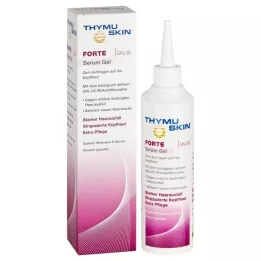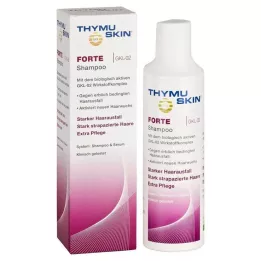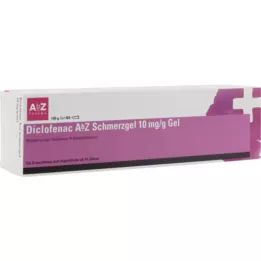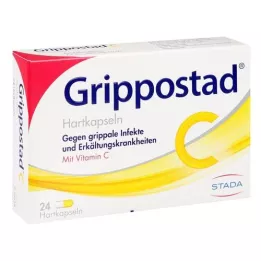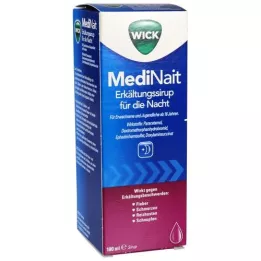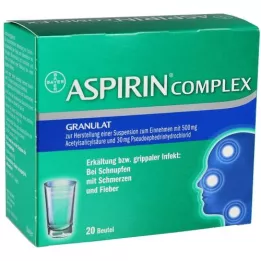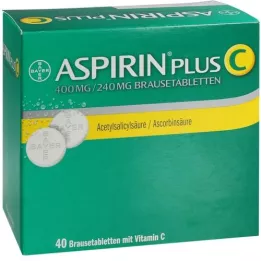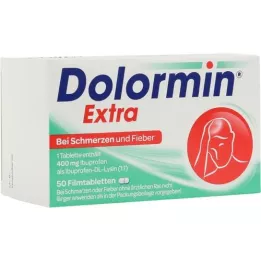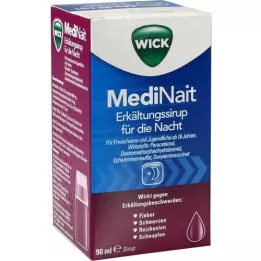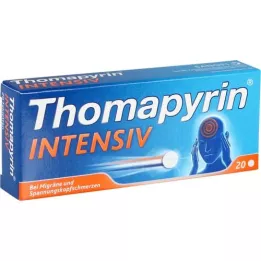DICLO-RATIOPHARM For pain and fever 25 mg fta, 20 pcs
DICLO-RATIOPHARM bei Schmerzen u.Fieber 25 mg FTA
Manufacturers: ratiopharm GmbH
PZN: 14170042
Dosage: Filmtabletten
Content: 20 St
Reward Points: 73
Availability: In stock
$12.04
$6.01
from German pharmacies to your address
Instructions for use for DICLO-RATIOPHARM For pain and fever 25 mg fta, 20 pcs
Dicloratiopharm ® for pain and fever 25 mg film-coated tablets
Active ingredient: diclofenac potassium.
Areas of application: short -term symptomatic treatment of light to moderately severe pain, fever.
Pharmacy.
Status: 6/18
Read the package supplement and ask your doctor or pharmacist for risks and side effects.
Detailed instructions for DICLO-RATIOPHARM For pain and fever 25 mg fta, 20 pcs
Field of use
- The preparation is a pain relieving and feverish drug from the group of non -steroidal inflammatory inhibitors/anti -inflammatory drugs (NSAID).
- The preparation is used for:
- symptomatic treatment of
- slight to moderate pain,
- Fever.
- symptomatic treatment of
- Note: The drug should not be used for a long time or in higher doses without questioning the doctor or dentist.
- If you do not feel better or worse after 4 days or with a fever after 3 days, please contact your doctor.
Active ingredients / ingredients / ingredients
25 mg diclofenac, potassium salt
22.15 mg diclofenac
2.92 mg potassium ion
Crospovidon auxiliary material (+)
Hypromellic auxiliary substance (+)
Potassium hydrogen carbonate auxiliary material (+)
Macrogol 400 auxiliary material (+)
Macrogol 6000 Hedge Terms (+)
Magnesium stair (Ph. EUR.) [pflanzlich] Hedge substance (+)
Mannitol Hilfoff (+)
Sodium dodecylsulfate auxiliary substance (+)
1 mmol total sodium ion hedge material (+)
Total sodium ion helper (+)
Contradictions
- The medicine must not be taken
- if you are allergic to Diclofenac or one of the other components of this drug.
- if you have reacted in the past with cramping the respiratory tract, asthma attacks, chest pain, nasal mucus swelling or skin reactions after taking acetylsalicylic acid or other NSAIDs.
- in the event of unexplained blood formation and blood clotting disorders.
- for active stomach or intestinal ulcers, bleeding or breakthrough.
- in the event of existing or repeated stomach/duodenum ulcers (peptic ulcers) or bleeding (at least 2 different episodes of proven ulcers or bleeding).
- in the case of gastrointestinal bleeding or breakthrough (perforation) in the history in connection with previous therapy with NSAID.
- for brain bleeding (cerebrovascular bleeding) or other active bleeding.
- for severe liver or kidney dysfunction.
- for heart failure (heart failure, according to the NYHA classification stages II-IV).
- if you have found heart disease and/or brain vessel disease, e.g. For example, if you had a heart attack, a stroke or a small stroke (transitory ischemic attack, TIA) or if you have blocks of the veins to your heart or brain or you had to undergo an operation to remove or circumvent these constipation.
- if you have or have problems with your bloodstream (peripheral arterial closure disease).
- in the last third of the pregnancy.
- Inform your doctor if you have recently undergone an surgical intervention of the stomach or intestine or plan to undergo an surgical intervention of the stomach or intestine before taking diclofenac, since in some cases the wound healing of your intestine can worsen an operational intervention.
dosage
- Always take this medicine exactly as described or exactly after the agreement made with your doctor or pharmacist. Ask your doctor or pharmacist if you are not sure.
- The recommended dose is:
- Adults and adolescents from the age of 16 take 1 film-coated tablet (corresponding to 25 mg diclofenac potassium), then 1 film-coated tablet (corresponding to 25 mg diclofenac potassium) every 4 to 6 hours.
- However, the maximum amount of 3 film-coated tablets (corresponding to 75 mg diclofenac potassium) should not be exceeded within 24 hours.
- Older patients
- The lowest effective dose should be used in older patients.
- Duration of the application
- Side effects can be minimized if the lowest effective dose is used over the shortest necessary period.
- Do not take this medicine without a medical or dental advice for longer than 4 days with slight to moderately severe pain or no longer than 3 days with fever. In the event of complaints that last longer or worsen, a doctor should be consulted.
- In general, the lowest effective dose required to relieve the symptoms should be used over the shortest possible period.
- Please speak to your doctor or pharmacist if you have the impression that the effect of Diclofenac is too strong or too weak.
- If you have taken a larger amount than you should
- Central nervous disorders such as headache, dizziness, drowsiness, ear noises (tinnitus), cramps (also myoclonic cramps), unconsciousness as well as abdominal pain, diarrhea, nausea and vomiting can occur as symptoms of overdose. Furthermore, bleeding in the gastrointestinal tract and functional disorders of the liver and kidneys, in the event of severe poisoning, also liver damage and acute kidney failure are possible. Furthermore, blood pressure drop, reduced breathing (respiratory depression) and the blue -red color of the skin and mucous membranes (cyanosis) can occur.
- There is no specific antidote (antidot).
- If you suspect an overdose with Diclofenac, please notify your doctor. According to the severity of poisoning, this can decide on the measures necessary.
- If you have forgotten the intake
- Do not take the double amount if you have forgotten the prior intake.
- If you have any further questions about the application of this medicine, please contact your doctor or pharmacist.
Taking
- To take.
- The film -coated tablets are taken with plenty of liquid. In order to achieve the best possible effectiveness, the film -coated tablets should neither be taken to nor immediately after eating.
Patient information
- Warnings and Precautions
- Please speak to your doctor or pharmacist before taking Diclofenac.
- Side effects can be minimized if the lowest effective dose is used over the shortest necessary period.
- The use of this medicine together with NSAIDs, including selective cyclooxygenase-2 inhibitors, should be avoided, since there is no evidence of a synergistic benefit and the side effects may increase.
- Caution is appropriate in older patients for fundamental medical reasons. In particular, it is recommended that the lowest still effective dose is used in elderly patients who are frail or a low body weight.
- Security in the gastrointestinal tract
- Fast -free oral dosage forms of Diclofenac, such as this medicine, can have increased gastric intolerance. Without consultation with the doctor, the maximum duration of use of 4 days with light to moderately severe pain or 3 days with fever may not be exceeded.
- If a longer-lasting therapy with diclofenac is required under medical supervision, the use of a better stomach-compatible DICLOFENAC formulation should be considered.
- Bleeding of the gastrointestinal tract, ulcers and breakthroughs (perforations) bleeding of the gastrointestinal tract, ulcers and perforations, also with a fatal outcome, were reported among all NSAIDs, including Diclofenac. They occurred with or without prior warning symptoms or serious events in the gastrointestinal tract in the prehistory at any time of therapy. In general you have more serious consequences in older patients.
- If you have gastrointestinal bleeding or ulcers during the application of this medicine, you break off.
- As with all NSAIDs, including Diclofenac, close medical monitoring is imperative, and when using DICofenac, special care is required in patients with symptoms who indicate gastrointestinal diseases or that have a history that is based on a stomach Or indicate intestinal ulcer, bleeding or breakthrough. The risk of the occurrence of gastrointestinal bleeding, ulcers and breakthroughs is higher with increasing NSAR dose and in patients with ulcers in the history, especially with the complications bleeding or breakthrough. In older patients, side effects, especially gastrointestinal bleeding and perforations, also occur under NSAID therapy. Therefore, particularly careful medical monitoring is required in older patients.
- In order to reduce the risk of gastrointestinal toxicity in patients with ulcers in anamnesis, especially with the complications bleeding and perforation, and in older patients, treatment with the lowest effective dose should be started and maintained.
- For these patients as well as for patients who need accompanying therapy with low-dose acetylsalicylic acid (ASA) or other medicines that can increase the risk of gastrointestinal diseases, a combination therapy with gastric-protecting drugs (e.g. misoprostol or proton pump inhibitor ) be considered.
- If you have a history of side effects on the gastrointestinal tract, especially at older age, you should report any unusual symptoms in the abdomen (especially gastrointestinal bleeding), especially at the beginning of the therapy.
- Caution is advisable if you get medicines that can increase the risk of ulcers or bleeding, such as: B. Systemic corticosteroids, anti-blood clotting medicines such as warfarin, selective serotonin reuptake inhibitors, which are used, among other things, to treat depressive moods, or thrombocyte aggregation inhibitors such as ASA.
- NSAID, including Diclofenac, should also be used in patients with a gastrointestinal disease in the prehistory (ulcerative colitis or Crohn Crohn Colitis) with careful monitoring and caution, since their condition can deteriorate.
- Effects on the cardiovascular system
- Medicines such as Diclofenac may be associated with an increased risk of heart attacks ("heart attack") or strokes. Every risk is more likely with high cans and longer treatment. Do not exceed the recommended dose or treatment duration of a maximum of 4 days with slight to moderate pain or a maximum of 3 days with fever.
- Before you receive diclofenac, inform your doctor,
- if you smoke,
- if you are diabetes (diabetes),
- if you have angina pectoris, blood clots, high blood pressure, increased cholesterol or triglyceride values.
- Skin reactions
- Under NSAR therapy, serious skin reactions with redness and bladder formation, some with a fatal outcome, were reported (exfediative dermatitis, Stevens-Johnson syndrome and toxic epidermal necrolysis/lyell syndrome;). The highest risk of such reactions seems to exist at the beginning of therapy, since these reactions occurred in the majority of cases in the first month of treatment. At the first sign of rashes, mucous membrane damage or other signs of a hypersensitivity reaction, break off this drug and contact a doctor immediately.
- Liver
- Patients with liver dysfunction require careful medical monitoring because their condition can deteriorate.
- As with other drugs from the NSAID class, the liver function can deteriorate when using Diclofenac. As a precaution, a regular determination of the liver function by your doctor is therefore a regular treatment or repeated treatment with DICLOFENAC displayed. Diclofenac should be discontinued immediately if the liver function continues or worsens if certain signs of liver disease are determined or if other manifestations occur (e.g. so -called eosinophilia, rash). Liver inflammation (hepatitis) can occur without previous symptoms.
- Caution is appropriate when using diclofenac in patients with a certain disorder of blood formation (so -called hepatic porphyria), as this can trigger a attack.
- Kidney
- Since liquid retention and edema in connection with NSAR therapy, including DICLOFENAC, have been reported, special caution is required in patients with impaired heart and kidney function), in patients who already suffer or suffered from high blood pressure, older patients and patients who also treated with so -called diuretics or medicines that can significantly impair kidney function. In addition, one should carefully treat patients who suffer from a significant reduction in fluid volume, e.g. B. before or after a larger operation. Previous monitoring of kidney function is recommended in such patients.
- After the therapy canceled, the condition is usually restored before the start of treatment.
- Other information
- This medicine should only be used with the strict weighing of the benefit-risk ratio:
- for certain innate blood formation disorders (e.g. acute intermittent porphyria),
- for certain autoimmune diseases (systemic lupus erythematosus and mixed collagenosis).
- A particularly careful medical monitoring is required:
- directly after larger surgical interventions.
- This medicine should only be used with the strict weighing of the benefit-risk ratio:
- Patients who have asthma, hay fever, swollen nasal mucosa (e.g. Nasal polyps), chronically obstructive respiratory diseases or chronic infections of the respiratory tract (especially in connection with symptoms such as those occur in allergic rhinitis), have an increased risk of the occurrence of allergic reactions. These can express themselves as asthma attacks (so-called intolerance to analgesics/analgesics asthma), quincke-edema or urticaria. Therefore, it is recommended to take special precautions in such patients (emergency readiness). This also applies to patients who are on other substances with an allergic reaction, such as: B. Skin reactions, itching or urticaria, react.
- As with other NSAIDs, allergic reactions, including anaphylactic/anaphylactoid reactions, also in severe form (e.g. anaphylactic shock, angioedema), can occur with other NSAIDs without prior contact with the medicine. At the first sign of a hypersensitivity reaction after taking this medicine, the therapy must be canceled. The symptoms corresponding, medically required measures must be initiated by expert persons.
- Diclofenac can temporarily inhibit the platelet aggregation. Patients with a disorder of the bloodstream (hemostasis) should therefore be carefully monitored.
- Like other NSAIDs, Diclofenac can mask the signs and symptoms of an infection. If signs of infection (e.g. redness, swelling, overheating, pain, fever) occur or worsen during the application of this drug.
- If you also take medicinal products for inhibiting blood clotting, reducing blood sugar, blood pressure or drainage agent, your doctor may carry out checks of certain blood values as a precaution (blood clorn, blood pressure or potassium level in the blood).
- If this drug is used for a long time, regular control of the kidney function and the blood count is required.
- When taking this drug before surgical interventions, the doctor or dentist must be asked or informed.
- If painkillers are used for a long time, headaches can occur, which may not be treated by increased doses of the drug. Ask your doctor for advice if you despite taking this medicineoften suffer from headaches by means of a headache!
- In general, the habitual intake of pain relievers, especially when combining several pain relieving active ingredients, can lead to permanent kidney damage with the risk of kidney failure (analgesic nephropathy).
- Diclofenac belongs to a group of drugs (NSAID) that can affect the fertility of women. This effect is reversible after stopping the drug.
- Children and adolescents
- An application of this drug in children and adolescents under the age of 16 is not recommended, since there is no sufficient experiences for this.
- Wateriness and ability to use machines:
- Do not drive any vehicles and do not operate machines if you suffer from visual disturbances, drowsiness, dizziness, sleepiness or other central nervous disorders while taking Diclofenac.
Pregnancy
- If you are pregnant or breastfeeding or if you suspect that you are pregnant or intend to become pregnant, ask your doctor or pharmacist for advice before taking this drug.
- Pregnancy
- If pregnancy is determined during the application of this drug, the doctor must be notified. You may only apply this medicine in the first and second thirds of pregnancy after consultation with your doctor. In the last third of pregnancy, this medicine must not be used due to an increased risk of complications for mother and child.
- Breastfeeding
- The active ingredient diclofenac passes into breast milk in small quantities. In order to avoid unwanted effects in the breastfed child, Diclofenac should not be used during breastfeeding.
- Reproductive ability
- Diclofenac can make it difficult for you to get pregnant. You should inform your doctor if you plan to get pregnant or if you have problems getting pregnant.
Hints
Medicines Reviews
There are no reviews for this product.
Write a review
Related Products

BORT Pedisoft Texline Protection Protection Medium, 1 pcs
BORT PediSoft TexLine Druckschutz medium
$10.26 $11.95
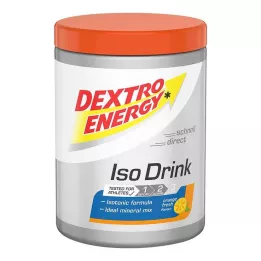
DEXTRO ENERGY Sports Nutr.Isotonic Drink Orange, 440 g
DEXTRO ENERGY Sports Nutr.Isotonic Drink Orange
$12.47
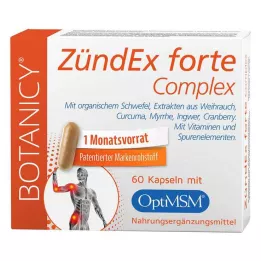
ZÜNDEX forte Complex with OptiMSM capsules, 60 pcs
ZÜNDEX forte Complex mit OptiMSM Kapseln
$26.04 $28.93
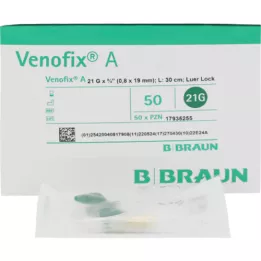
VENOFIX A Venue puncture B.21 g 0.8x19mm 30cm green, 1 pcs
VENOFIX A Venenpunktionsb.21 G 0,8x19mm 30cm grün
$1.16

ROCHE-POSAY Hydrate Anthelios.Milk LSF 50+, 75ml
ROCHE-POSAY Anthelios hydratisieren.Milch LSF 50+
$16.32 $20.40
Popular in Pain & Fever
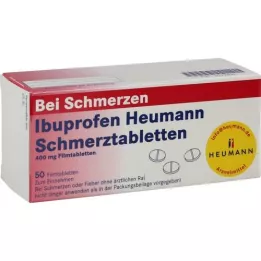
IBUPROFEN Heumann painkillers 400 mg, 50 pcs
IBUPROFEN Heumann Schmerztabletten 400 mg
$7.15 $14.29




